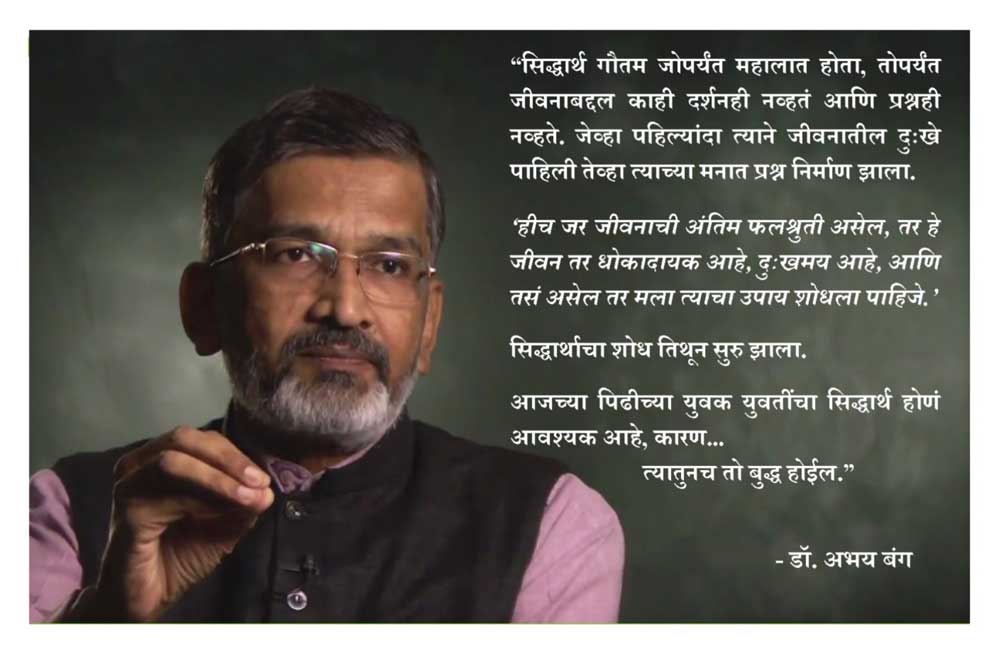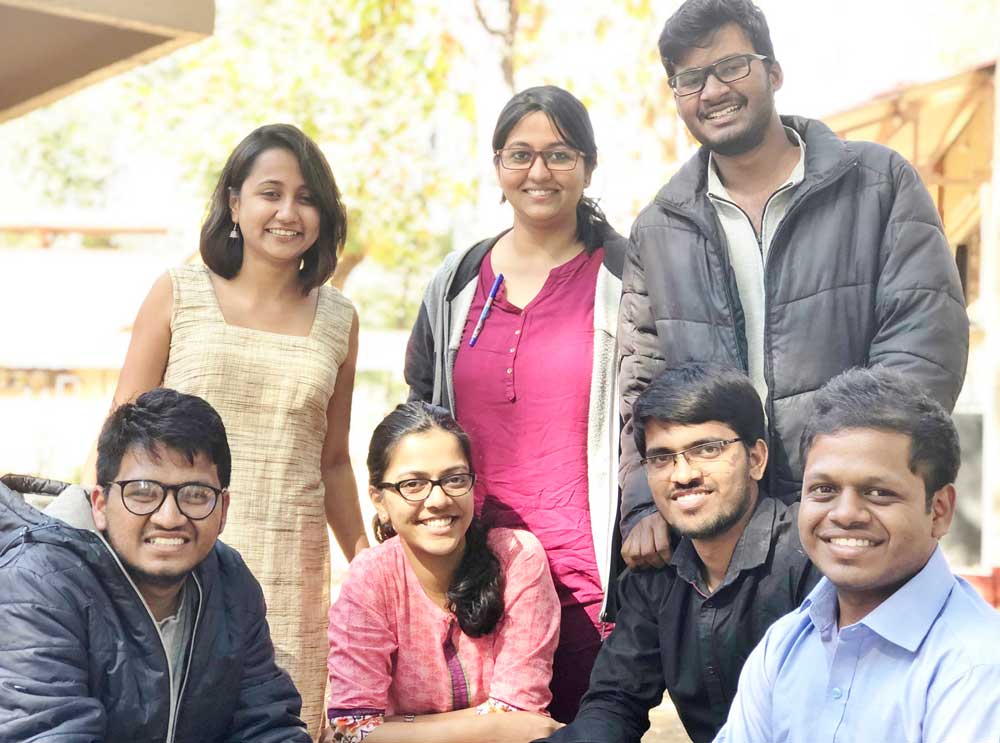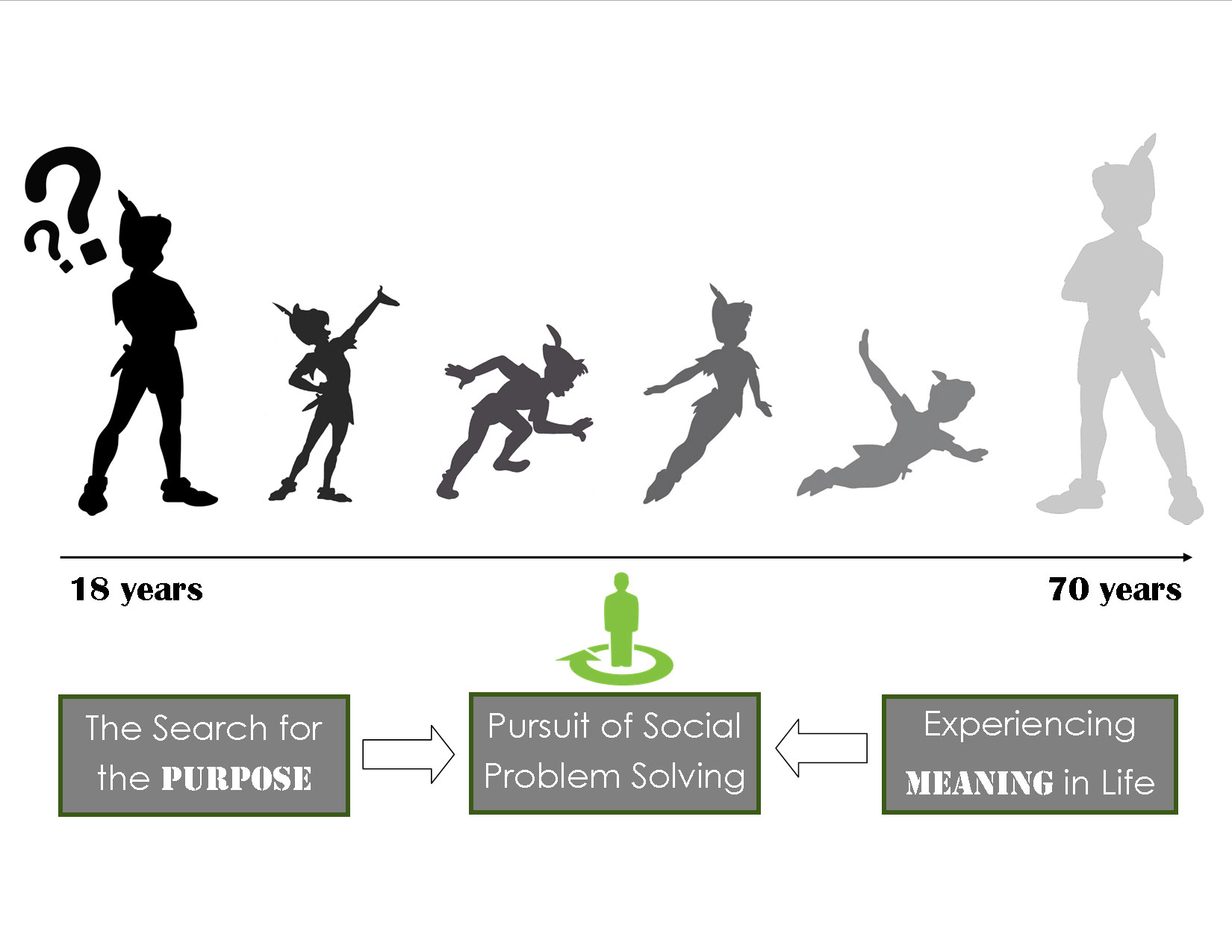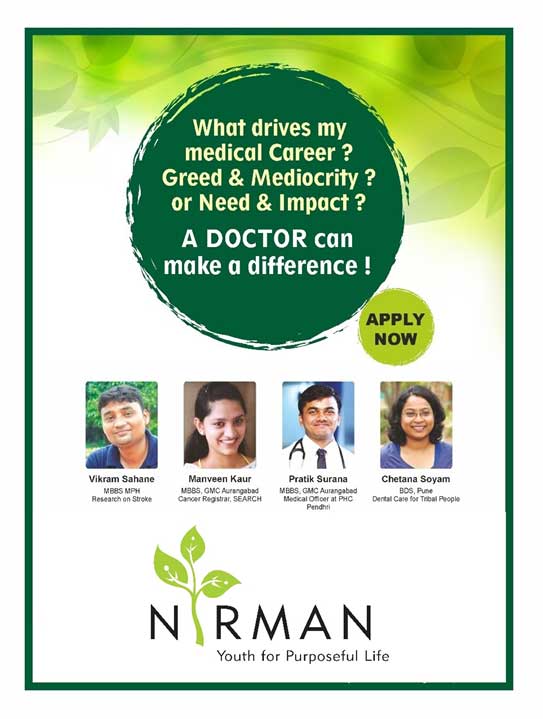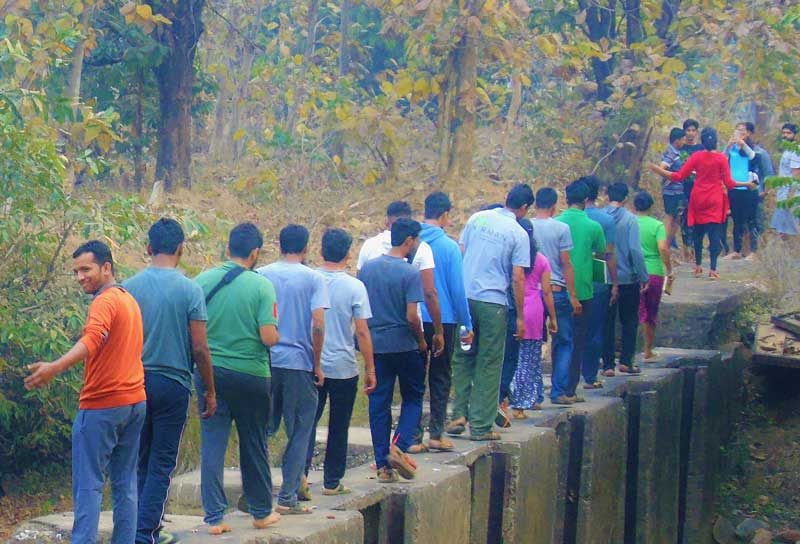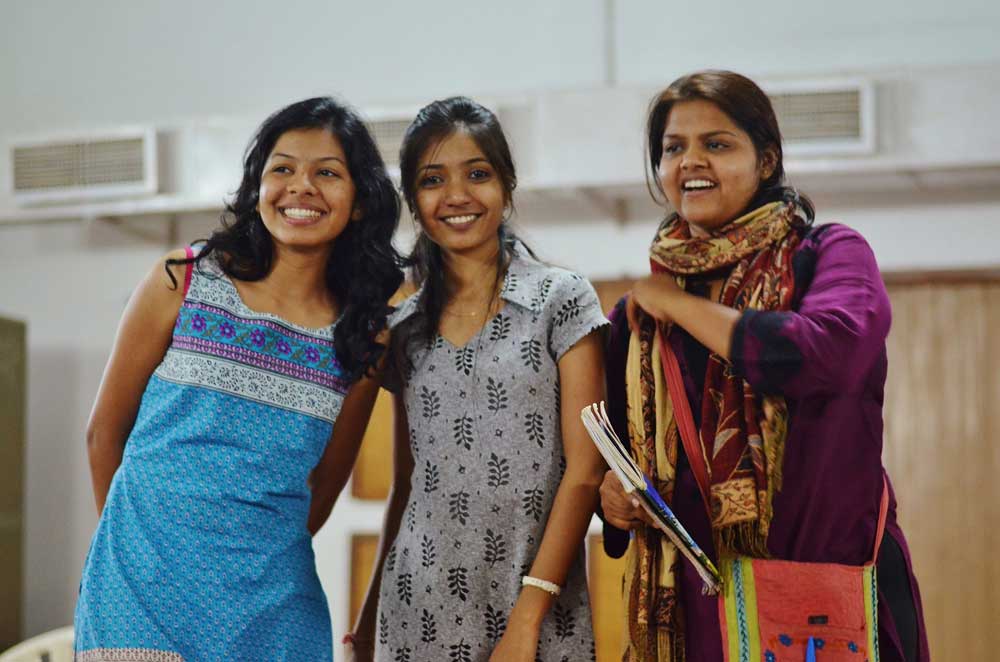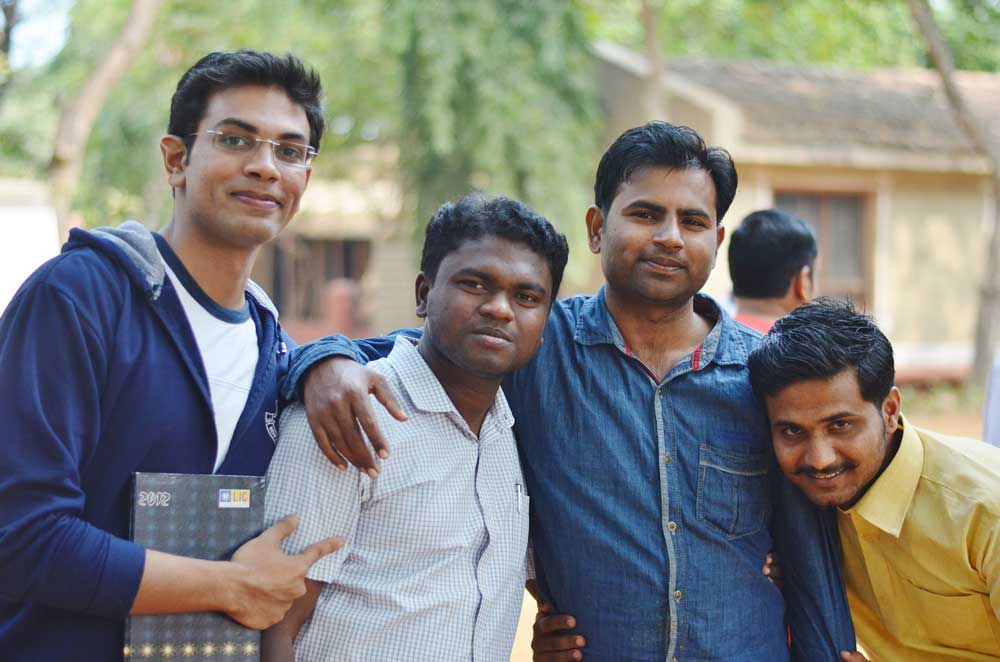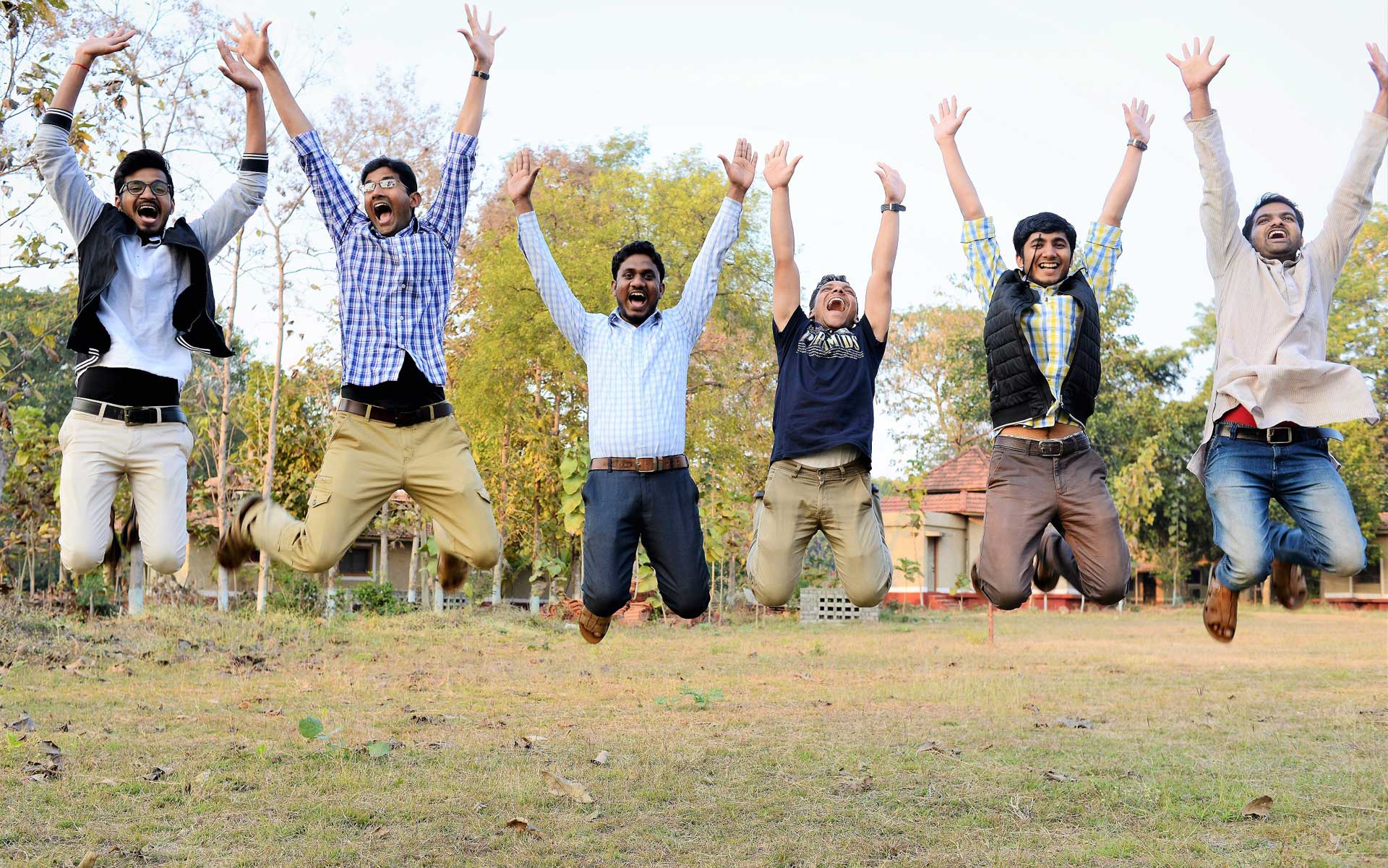The participants in NIRMAN belong to the age group of 18 to 28, the ‘emerging adulthood’ phase (phrase coined by American Psychologist Jeffery Jensen Arnett). It is the age of identity exploration and the age of possibilities when little about the future has been decided for certain. Having not yet entered the enduring responsibilities, they explore variety of life directions in love, work and world views.
For the youth interested in social issues, the key developmental questions that we have observed include the ones related to their self-identity, sense of purpose and meaning, relationship with family and partner, need for a likeminded group of friends, supportive mentoring, deeper understanding of social problems and approaches of solving them, clarity of values and conviction of decision-making, personal effectiveness and career.

